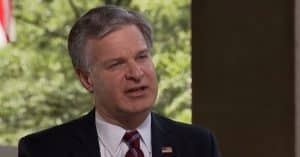Trump New York hush money trial delayed for 30 days
In an unexpected legal twist, former President Donald Trump's hush-money trial faces a 30-day postponement.
A recent decision by Judge Juan Merchan to delay the trial aims to provide Trump's defense team ample time to sift through 15,000 records of evidence, highlighting the complexities of legal proceedings in high-profile cases, as Fox News reports.
The case centers around allegations that Trump, during his 2016 presidential campaign, was involved in payments made to silence claims of an extramarital affair with adult film star Stormy Daniels. These payments are said to have been masked through falsification of business records, leading to Trump's indictment on 34 felony counts. He has pleaded not guilty, denying any sexual encounter with Daniels.
The postponement came after a staggering 104,000 pages of records were disclosed to Trump's legal team, originating from a prior federal investigation into the matter. This investigation had previously led to the conviction of Trump's former lawyer, Michael Cohen, on charges including campaign finance violations connected to these very hush-money payments.
A Deep Dive into the Legal Labyrinth
The timeline of events began with the Justice Department's decision to release these records, a move that added a significant volume of information into the mix. Initially, 74,000 pages were handed over to Manhattan District Attorney Alvin Bragg's office, which then relayed the documents to Trump's defense. This evidentiary mountain comprises details from the federal probe that had scrutinized the hush-money arrangement, culminating in Cohen's imprisonment.
Given the enormity of the data dump, Trump's attorneys argued for more time to review the evidence, requesting a 90-day delay or, alternatively, a dismissal of the charges. They contended that the sheer volume of information, especially the newly turned over 15,000 records from the Justice Department, could potentially harbor crucial details for Trump's defense.
The scheduled hearing on March 25 is expected to address these concerns, with both sides presenting their views on how the evidence might influence the trial's proceedings. Judge Merchan, while agreeing to a 30-day delay, has yet to rule on the request for a longer adjournment, a decision that could further complicate the legal battle ahead.
Dissecting the Justice Department's Evidence
Among the evidence, the U.S. Attorney's Office has indicated that much of the material may not be directly related to the state case against Trump. This distinction raises questions about the relevance of certain documents and how they will be utilized in court.
Despite this, the defense maintains that the evidence from the federal investigation is crucial for their case. The overlapping details between the federal and state investigations underline the complexities of navigating legal challenges in situations where different jurisdictions intersect.
D.A. Bragg, for his part, has expressed a willingness to accommodate the defense's need for more time to review the evidence. This stance reflects a degree of prosecutorial flexibility in high-stakes legal matters, acknowledging the importance of a fair and thorough examination of all pertinent information.
The Battle Over Legal Discovery
At the heart of the dispute is the process of legal discovery, a phase in the criminal justice system where both sides disclose evidence to one another. Trump's lawyers have criticized the discovery process in this case, arguing that the late provision of such a substantial amount of evidence violates their client's rights.
Their claim of "insufficient" time to review the newly received 15,000 records underscores the challenges defense teams face when confronted with late disclosures. This situation has prompted a call for a hearing on discovery, where the defense hopes to argue for either an extended delay or the dismissal of charges based on procedural grounds.
Such legal maneuvering highlights the strategic considerations at play in high-profile cases, where every procedural advantage can be pivotal. The defense's assertion that the evidence from the federal investigation is indispensable to Trump's case signals a deep dive into the intricacies of the charges against him.
Revisiting the Allegations Against Trump
The allegations stem from a payment made to Stormy Daniels, aimed at preventing her from publicizing claims of a sexual encounter with Trump. This payment, facilitated by Michael Cohen, was later categorized as a campaign finance violation by federal prosecutors, leading to Cohen's legal troubles.
Trump's denial of the affair and the ensuing legal battles have placed the spotlight on the use of company resources to handle personal and potentially damaging claims. The falsification of business records, a key point in the indictment, suggests an attempt to obscure the true nature of the payments made.
As the case unfolds, the strategies employed by Trump's defense team and the prosecution will undoubtedly be scrutinized. The upcoming hearing on March 25 and the delayed trial start provide a window into the complex legal and evidentiary issues at play in this high-profile case.
Conclusion: Navigating the Legal Maze
In summary, the postponement of Donald Trump's hush-money trial by Judge Juan Merchan introduces a new phase in a case already laden with legal and political implications. The defense's struggle to review an overwhelming amount of evidence, the prosecutorial discretion exhibited by DA Bragg, and the broader questions about the intersection of federal and state investigations converge to create a multifaceted legal challenge.
As the March 25 hearing approaches, all eyes will be on how these complex legal dynamics unfold, shaping the path forward in one of the most closely watched cases in recent history.




